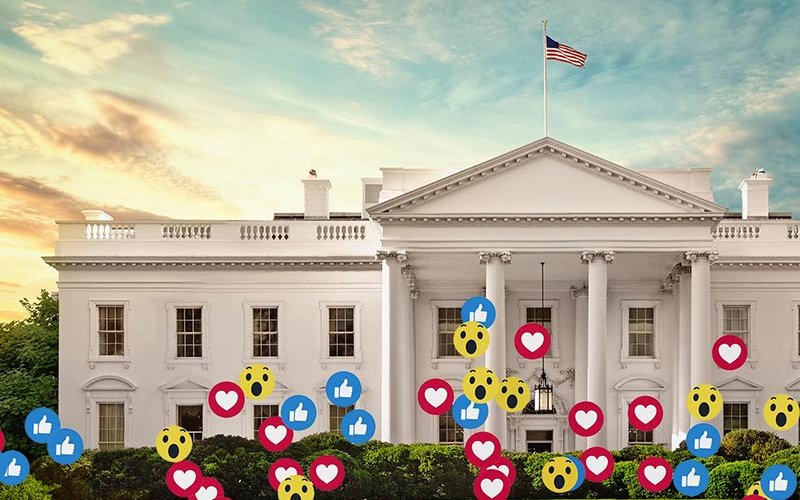
As the impeachment inquiry heats up in Washington, many are drawing parallels to the Nixon administration and Watergate scandal.
But Cal State Fullerton faculty members Scott Spitzer and Jason Shepard argue that it’s difficult to make that comparison because today’s political and media climate are vastly different — and one of the key reasons is social media.

Jason Shepard, chair and professor of communications
“We are in a completely different media world today than we were when President Nixon faced the Watergate scandal in the 1970s, and even when President Clinton faced impeachment in the 1990s,” says Shepard, chair and professor of communications.
“While journalists are aggressively digging for facts and reporting stories about President Trump’s attempts to use foreign countries to investigate his domestic political opponents, the reach and impact of those stories sometimes gets lost in the flood of social media and distortion chamber of partisan propaganda.”
Social media also amplifies the unprecedented levels of partisan polarization in recent decades, says Spitzer, an associate professor of political science and Nixon scholar.

Scott Spitzer, associate professor of political science
“The Republican Party has been trending toward right-wing populism, particularly since the rise of the tea party in 2010. At the same time, the Democratic Party is experiencing a newly energized populist left movement. The widespread use of social media has reinforced these polarizing effects.”
Contrasting this with the political climate in 1974, Spitzer explains that while there were high levels of anger with, and distrust of, President Nixon from the left wing of the Democratic party, Nixon had won a massive landslide victory in 1972 and was popular among the general public. Republicans and Democrats in Congress often worked together in coalition, especially conservative Democrats from the South and more moderate Republicans from the Northeast.
“When journalists revealed the Nixon administration’s involvement in what came to be known as Watergate, the nation was in shock,” says Spitzer. “Most of the president’s supporters refused to believe that he could be involved in such corruption, and therefore the efforts of the Democrats to pursue impeachment were met with passivity or with hostility — until the ‘smoking gun’ tape was found.
“The undeniable evidence that the president had been engaged in covering up a crime caused the wider public to turn against him swiftly.”
As hard news journalists are no longer the primary source for people’s news about public affairs, Shepard says many Americans will continue to see impeachment news through a partisan lens.
“Researchers have long found that one effect of social media use is that people tend to participate in partisan echo chambers, listening to and reconfirming views they already hold. And in our so-called ‘post-truth’ era, fear, doubt and conspiracy theories threaten to be more important motivators than facts and truth.”